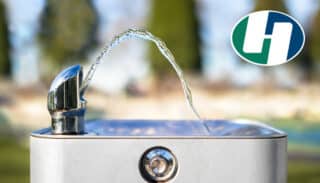More than 2 billion people across the world are affected by not having access to clean water or proper sanitation, resulting in the death of over 700,000 children each year. Solving this problem isn’t as simple as installing sewer or septic systems, as they require more energy and infrastructure than could be effectively maintained in many developing countries. Waste from the latrines most commonly used in these areas are left untreated and merely dumped into local rivers and other bodies of water, where it will contribute to the spread of disease.
The latest venture from the Bill and Melinda Gates Foundation seeks to resolve this problem by creating a wastewater treatment method that eliminates disease-causing sewage from the environment and converts it into clean, drinkable water. The steam engine-powered device is called the Omniprocessor, manufactured by Seattle-based Janicki Bioenergy. The Omniprocessor can convert human waste into clean, drinkable water in a matter of minutes, while producing energy to incinerate the remaining waste solids and leave 250 kilowatts to spare. The resulting ash does not have an odor and will not contain disease-causing microbes.
Using the waste from 100,000 people, the Omniprocessor will produce 86,000 liters of water per day, enough for 43,000 people. Though there is a deficit in supply and demand, this will be a tremendous relief for people in these areas. This isn’t meant to be strictly charity, but a means of creating self-supported economies.
“If we get it right, it will be a good example of how philanthropy can provide seed money that draws bright people to work on big problems, eventually creating a self-supporting industry. Our foundation is funding Janicki to do the development,” Bill Gates wrote on his blog, Gatesnotes. “Our goal is to make the processors cheap enough that entrepreneurs in low- and middle-income countries will want to invest in them and then start profitable waste-treatment businesses.”
The pilot Omniprocessor will be installed in Dakar, Senegal later this year. There are over 2.4 million people in Dakar’s metro area, with 24% living without electricity or running water. Gates notes that this will not be a quick fix to such a widespread problem, but it is a good start.
Of course, anyone can sit around and talk about how great this system will be. Gates, understanding that actions speak louder than words, decided to show his confidence in the efficacy of the Janicki Omniprocessor in no uncertain terms: by drinking water that had been raw sewage just five minutes prior.
[via IFL Science]




